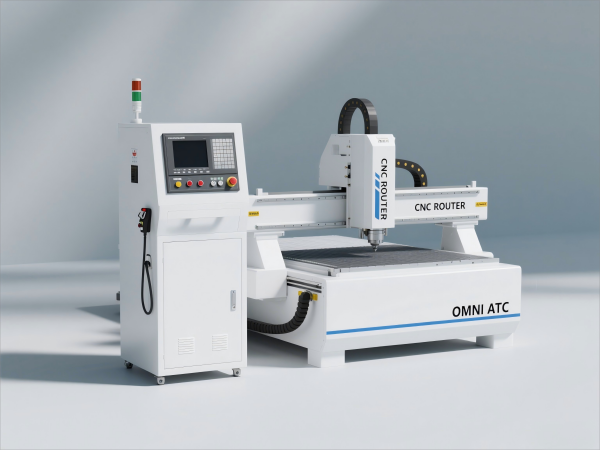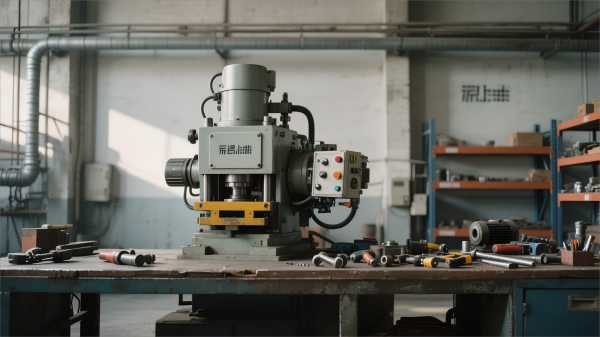CNC specialty machines are transforming industries like aerospace, medical, and automotive by enabling precision manufacturing for complex, custom parts.
1. What Are CNC Specialty Machines?
CNC specialty machines 🛠️ are advanced CNC systems tailored for specific tasks, such as 5-axis machining, laser cutting, or wire EDM. Unlike standard CNC routers or mills, these machines handle unique materials (e.g., composites, titanium) or complex geometries. For example, a Swiss-type lathe excels in micro-machining medical implants. CNC specialty machines use G-code and M-code to execute precise instructions, making them indispensable for industries requiring high accuracy and customization.
Table 1: Types of CNC Specialty Machines
|
Machine Type |
Description |
Applications for CNC Specialty Machines |
|---|---|---|
|
5-Axis CNC |
Moves along five axes |
Aerospace components, complex molds |
|
Wire EDM |
Uses electrical discharge |
Precision dies, intricate metal parts |
|
Swiss-Type Lathe |
High-precision turning |
Medical implants, small electronics |
2. What Industries Benefit Most from CNC Specialty Machines?
CNC specialty machines serve industries with stringent precision requirements. Aerospace relies on them for turbine blades, while medical manufacturing uses them for prosthetics. Automotive applications include custom engine parts, and jewelry production benefits from micro-machining. Their ability to handle exotic materials 📐 like Inconel or carbon fiber makes CNC specialty machines versatile across high-tech sectors.
3. How Do CNC Specialty Machines Differ from Standard CNC Machines?
Standard CNC machines, like 3-axis routers, handle basic milling or cutting, while CNC specialty machines offer advanced capabilities. For instance, multi-axis machines enable simultaneous movement in multiple directions, ideal for intricate shapes. They often integrate technologies like laser scanning or additive manufacturing. CNC specialty machines also require specialized CAD/CAM software to program complex tool paths, setting them apart in precision and functionality.
4. What Skills Are Needed to Operate CNC Specialty Machines?
Operating CNC specialty machines 🧰 demands advanced skills. Operators must master:
-
G-code programming for custom tool paths.
-
Reading technical drawings with tight tolerances.
-
Using software like Mastercam or Siemens NX. Training programs, such as those from Haas Automation, teach setup, calibration, and troubleshooting. Certification from the National Institute for Metalworking Skills (NIMS) validates expertise, ensuring operators can handle the complexity of CNC specialty machines.
Table 2: Essential Skills for CNC Specialty Machines
|
Skill |
Description |
Importance for CNC Specialty Machines |
|---|---|---|
|
G-Code Programming |
Writing machine instructions |
Ensures precise tool movements |
|
CAD/CAM Proficiency |
Designing and generating tool paths |
Enables complex part production |
|
Troubleshooting |
Diagnosing machine errors |
Maintains production efficiency |
5. What Are the Costs of CNC Specialty Machines?
Costs for CNC specialty machines vary based on complexity:
-
Entry-Level: $20,000-$50,000 (e.g., small 5-axis routers).
-
Mid-Range: $50,000-$150,000 (e.g., wire EDM).
-
High-End: $150,000+ (e.g., Swiss lathes for medical). Additional expenses include tooling, software licenses, and maintenance. Operating costs, like electricity and consumables (e.g., EDM wire), also factor in. Budgeting for CNC specialty machines requires evaluating long-term ROI, especially for high-precision industries.

6. How Do I Choose the Right CNC Specialty Machine?
Selecting a CNC specialty machine depends on:
-
Project Requirements: Match machine capabilities to material and geometry needs.
-
Work Area: Ensure the machine accommodates your largest parts.
-
Software Integration: Verify compatibility with CAD/CAM platforms.
-
Support: Choose brands like DMG Mori or Makino with reliable service. Researching specifications and consulting with manufacturers ensures your CNC specialty machine aligns with production goals.
7. What Maintenance Do CNC Specialty Machines Require?
Maintenance is critical for CNC specialty machines 📝. Key tasks include:
-
Cleaning: Remove debris to prevent motor strain.
-
Lubrication: Grease linear rails and bearings regularly.
-
Calibration: Check spindle and axis alignment monthly.
-
Tool Inspection: Replace worn tools to maintain precision. Following manufacturer guidelines, such as those from GF Machining Solutions, extends machine life and ensures consistent performance of CNC specialty machines.
8. Are CNC Specialty Machines Safe to Operate?
Safety is paramount with CNC specialty machines. Operators should:
-
Wear PPE (e.g., safety glasses, gloves).
-
Use emergency stop buttons for quick shutdowns.
-
Secure workpieces with clamps or vacuum tables. Adhering to ISO 45001 standards minimizes risks. Training on machine-specific safety features, like those on Haas systems, builds trust in operating CNC specialty machines safely.
Table 3: Safety and Maintenance for CNC Specialty Machines
|
Aspect |
Description |
Benefit for CNC Specialty Machines |
|---|---|---|
|
PPE |
Safety glasses, ear protection |
Protects operators from hazards |
|
Calibration |
Aligns spindle and axes |
Ensures precision and longevity |
|
Emergency Stops |
Immediate machine shutdown |
Prevents accidents during errors |
9. What Are the Latest Trends in CNC Specialty Machines?
CNC specialty machines are evolving with:
-
Hybrid Manufacturing: Combining CNC with 3D printing.
-
AI Integration: Optimizing tool paths with machine learning.
-
IoT Connectivity: Remote monitoring via apps. These trends, reported by Modern Machine Shop, enhance efficiency and precision. Staying updated ensures your CNC specialty machine remains competitive in advanced manufacturing.

Common Industry Problems and Solutions
-
Problem: Tool Wear
Excessive wear reduces precision and increases costs.
Solution: Use high-quality carbide tools, monitor cutting speeds, and schedule regular tool inspections. Optimizing feed rates for CNC specialty machines extends tool life and maintains quality. -
Problem: Programming Errors
Incorrect G-code leads to defective parts.
Solution: Validate programs with simulation software like VCarve Pro. Train operators in debugging and use updated CAD/CAM tools to ensure accurate CNC specialty machine performance. -
Problem: Machine Downtime
Unplanned stoppages disrupt production.
Solution: Implement predictive maintenance using IoT sensors. Schedule regular servicing and keep spare parts on hand to minimize downtime for CNC specialty machines.
Conclusion
CNC specialty machines empower industries with precision and versatility, but understanding their features, costs, and maintenance is essential. This Q&A guide, grounded in E-E-A-T principles, addresses key questions to help you leverage these machines effectively. Whether you’re in aerospace or medical manufacturing, CNC specialty machines can elevate your production. Explore these insights to make informed decisions and unlock their full potential.
Glossary of Terms
-
Computer Numerical Control (CNC): Automated system using computer instructions to control tools.
-
5-Axis Machining: CNC process with movement across five axes for complex parts.
-
Wire EDM: Electrical discharge machining for precision cutting.
-
Swiss-Type Lathe: CNC machine for high-precision turning of small parts.
-
G-code: Programming language for CNC tool movements.
-
M-code: Commands for miscellaneous machine functions (e.g., coolant).
-
CAD/CAM Software: Tools for designing (CAD) and generating machining instructions (CAM).
-
Tolerances: Allowable deviations in part dimensions.
-
PPE: Personal protective equipment, e.g., glasses, gloves.
-
Vacuum Tables: Workholding system using suction to secure materials.
Authoritative References
-
Modern Machine Shop. (2025). CNC Specialty Machines: Trends and Innovations. https://www.mmsonline.com/articles/cnc-specialty-machines
-
ThomasNet. (2024). Guide to Specialty CNC Machining. https://www.thomasnet.com/articles/machinery-tools-supplies/specialty-cnc-machining/
-
Haas Automation. (2024). CNC Specialty Machine Training. https://www.haascnc.com/training.html
-
DMG Mori. (2025). Advanced CNC Solutions for Specialty Applications. https://www.dmgmori.com/solutions/specialty-machining